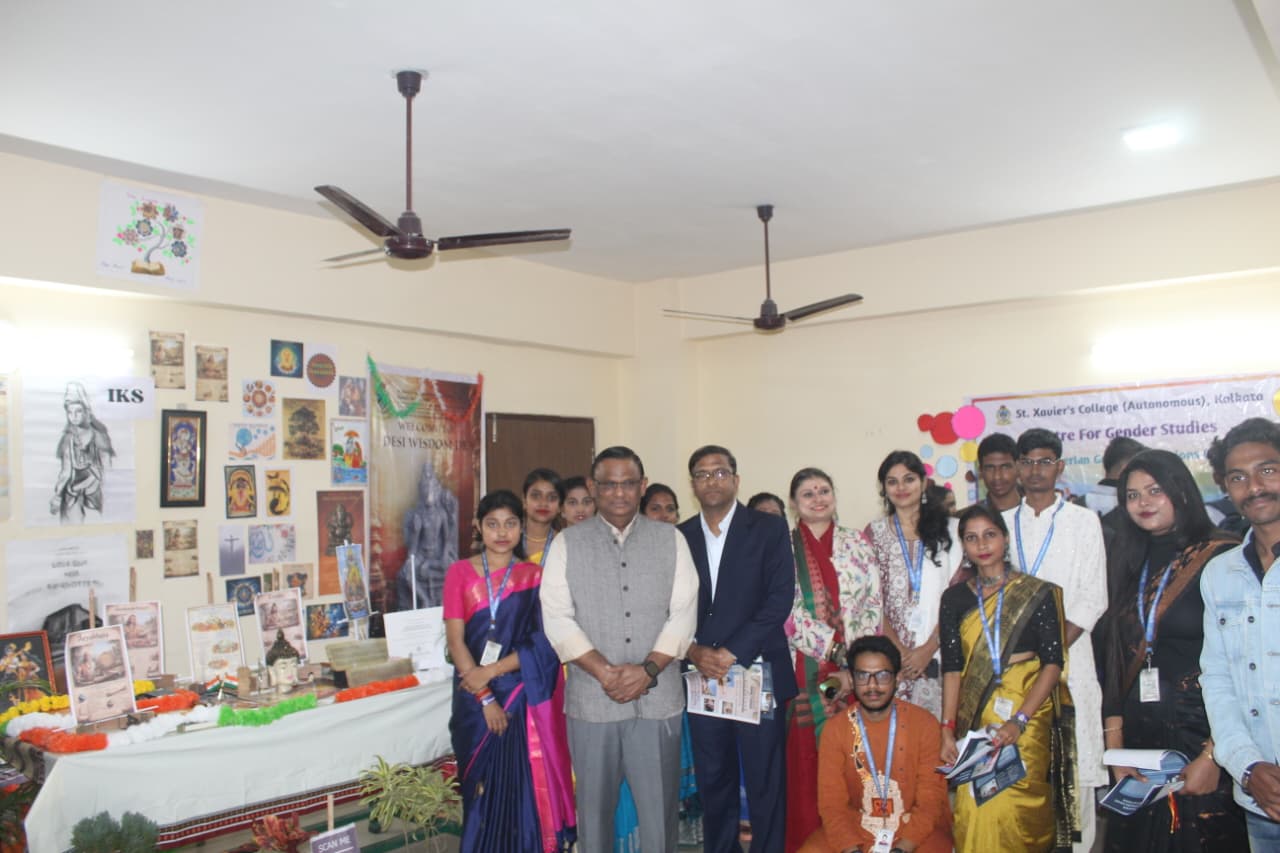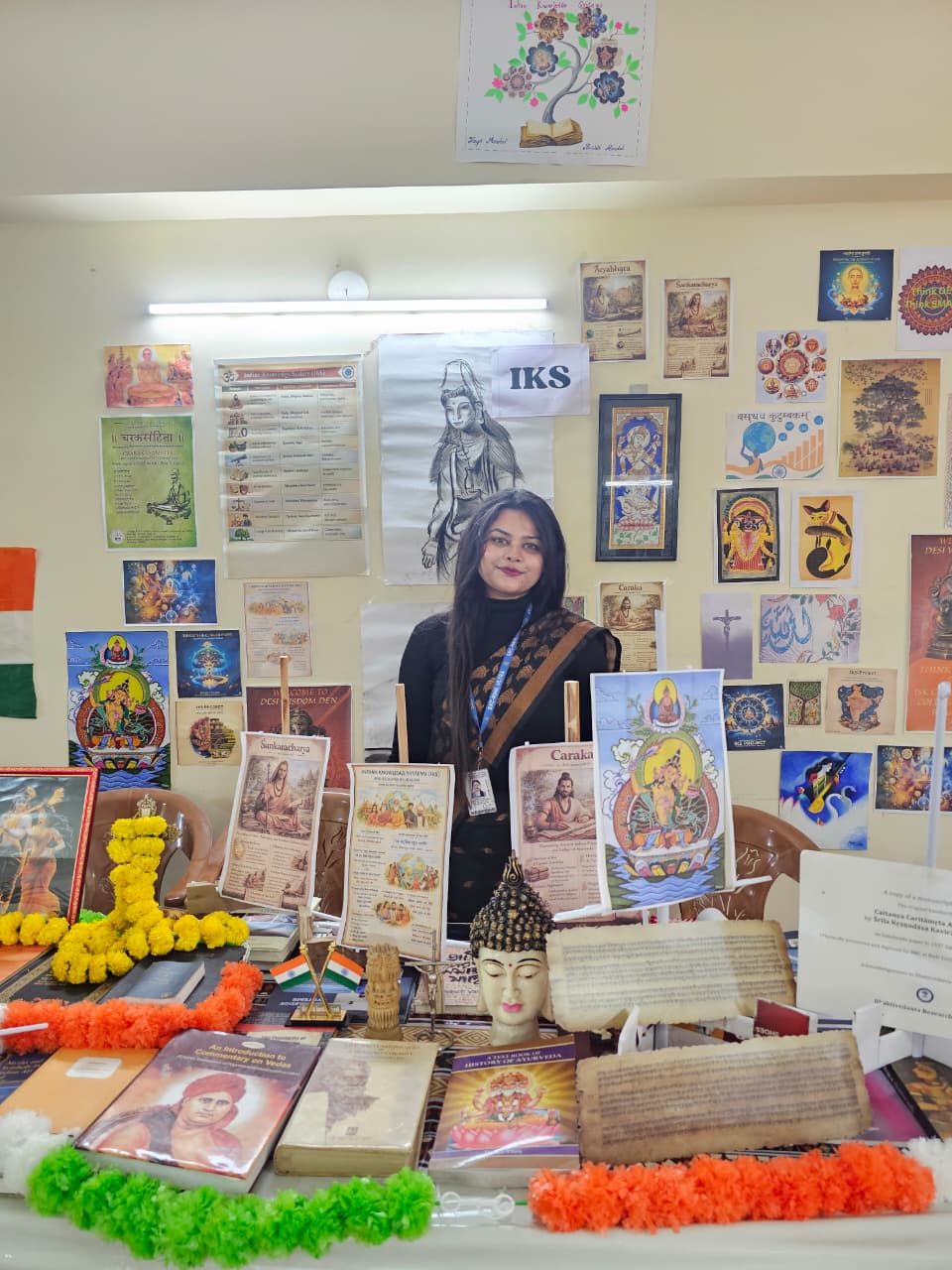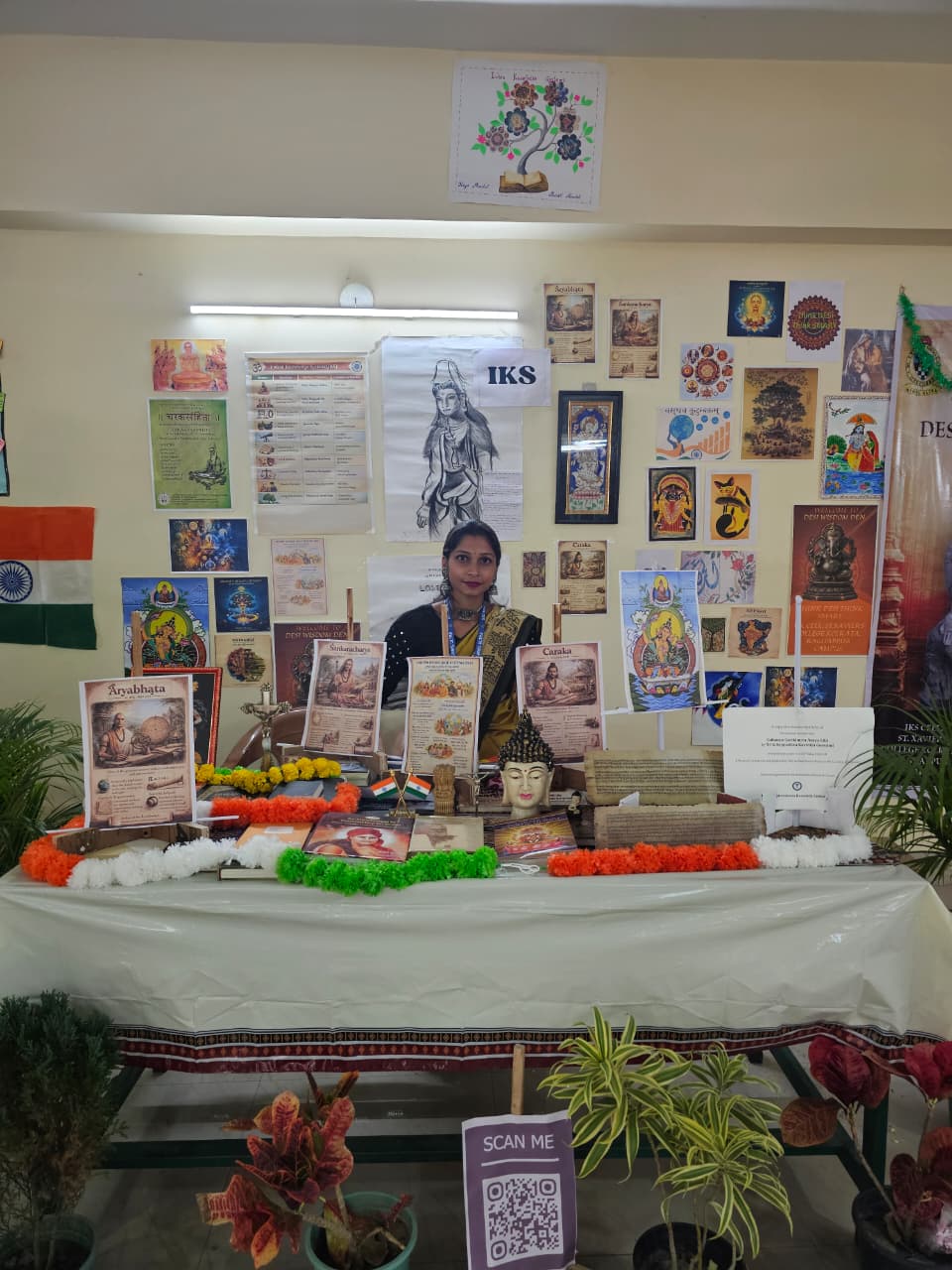

Introduction
Indian Knowledge Systems (IKS) represent the vast and diverse intellectual traditions of India, nurtured and refined over thousands of years. Rooted in holistic thinking and experiential wisdom, IKS cover a wide spectrum of disciplines including philosophy, languages, literature, mathematics, astronomy, metallurgy, architecture, agriculture, governance, medicine (Ayurveda, Siddha, Yoga), performing arts, and environmental management. These systems evolved through close observation of nature, community practices, and intergenerational knowledge transfer, making them deeply sustainable and culturally relevant.
Recognizing the importance of this heritage, the Government of India and the University Grants Commission (UGC) have emphasized the need to integrate IKS into higher education. The aim is not only to preserve and document traditional knowledge but also to contextualize its relevance in addressing modern challenges such as climate change, health and well-being, resource management, and social cohesion. By blending ancient insights with contemporary scientific approaches, IKS provide a unique framework for innovation, critical inquiry, and nation-building.
In the current academic landscape, IKS is envisioned as a platform for multidisciplinary learning. It encourages students and researchers to explore indigenous perspectives, engage with local communities, and develop solutions rooted in cultural ethos while being globally relevant. Through teaching, research, training, and outreach, IKS initiatives seek to bridge the gap between tradition and modernity, thereby fostering pride in India’s intellectual heritage and contributing to sustainable development in the 21st century.
Objectives of the Indian Knowledge Systems (IKS) Cell
To integrate Indian Knowledge Systems into contemporary curricula in higher education, fostering an appreciation for indigenous wisdom alongside modern scientific developments.
To promote interdisciplinary research that explores the relevance of IKS in addressing contemporary challenges related to sustainability, health, environment, economy, and society.
To encourage innovation through blending traditional knowledge with modern science and technology.
To conduct training programs, workshops, and certificate courses for students, faculty, and researchers on various aspects of IKS.
To develop skill-based learning modules that draw from traditional crafts, practices, and technologies.
To create awareness among stakeholders about the richness and global relevance of IKS through seminars, conferences, exhibitions, and publications.
To engage with local communities, practitioners, and knowledge holders for dissemination and dialogue.
To establish linkages with national and international institutions, research bodies, and industry for collaborative projects on IKS.
To facilitate partnerships with traditional knowledge holders and communities for knowledge-sharing and co-creation.
To promote IKS-based approaches to sustainable development, environmental management, health, and well-being.
To encourage policy recommendations that recognize the significance of IKS in governance effectiveness.
Future Plans and Actions of the IKS Cell
Curriculum Integration
Introduce credit-bearing courses on Indian Knowledge Systems at undergraduate and postgraduate levels, in line with UGC guidelines.
Develop elective and certificate courses on themes such as Indian philosophy, Ayurveda, Yoga, classical languages, indigenous technologies, and sustainable practices.
Research and Publications
Initiate interdisciplinary research projects that connect IKS with modern scientific and social challenges (e.g., climate resilience, public health, renewable energy, governance).
Publish research papers, policy briefs, and edited volumes highlighting contemporary applications of IKS.
Establish a digital repository of institutional IKS-related work.
Workshops, Seminars, and Outreach
Organize regular workshops, lecture series, and national/international seminars to foster dialogue between traditional knowledge holders, scholars, and students.
Celebrate IKS-focused events (e.g., International Yoga Day, Ayurveda Day, Sanskrit Week) to raise awareness on campus and beyond.
Collaboration and Networking
Build collaborations with IKS division of the Ministry of Education, other universities, research institutions, and cultural organizations.
Establish linkages with local practitioners, artisans, and communities to preserve and document indigenous practices.
Skill Development and Innovation
Develop skill-based training modules in areas such as traditional crafts, medicinal plant knowledge, organic farming, and architectural practices.
Encourage innovation labs that blend indigenous practices with emerging technologies.
Resource Development
Develop Massive Open Online Courses (MOOCs) and e-learning modules for wider dissemination.
Student and Faculty Engagement
Encourage student projects, internships, and dissertations rooted in IKS themes.
Provide faculty development programs to equip teachers with the tools to integrate IKS in their courses.
Sustainability and Societal Impact
Promote community outreach projects linking IKS to local needs such as sustainable agriculture, health awareness, and ecological conservation.
Work towards policy recommendations and actionable models demonstrating how IKS can contribute to sustainable development goals (SDGs).
Composition of the IKS Cell
Dr. Jhumpa Mukherjee (Convenor & IQAC Coordinator)
Dr. Sumona Ghosh (Member Secretary, Academic Council)
Dr. Arup Kumar Mitra (Controller of Examinations)
Dr. Amitava Roy (Dean of Commerce (Morning)
Dr. Soheli Ghosh (Dean of Commerce (Evening)
Dr. Tinni Goswami (Assistant Professor, History)
Dr. Dona Das Sengupta (Assistant Professor, Education)
Report on the IKS Expo at X-Plore, the College Carnival, Raghabpur Campus, 29th January, 26
The Indian Knowledge Systems Cell, Raghabpur Campus, under the guidance of Dr. Jhumpa Mukherjee, Coordinator, IKS Cell, St. Xavier’s College (Autonomous), Kolkata, and Dr. Tinni Goswami, member, IKS Cell, organized a detailed exhibition on Understanding Indian Knowledge Systems: The Divine Wisdom through the Lenses of Scientific Humanism on 29th January, 2026, at the Raghabpur Campus on the occasion of the College carnival. The exhibition displayed a copy of the original handwritten manuscript folio of Caitanya Caritāmṛta Antya Līlā (1537 Saka, 1615 AD) by Śrīla Kṛṣṇadāsa Kavirāja Gosvāmī, which we collected from Bhakti Vedanta Research Centre, Kolkata. The stall also exhibited books in Sanskrit, English, and Bengali on IKS along with various charts, posters, paintings, and models themed on diverse aspects of ancient Indian wisdom based on astronomy or Jyotish, mathematics or Ganit, grammar or Vyākaraṇa, Hindu medical science or Ᾱyurveda, philosophy or Darshana, and religion or Sanatana. Students and the visitors showed immense interest in understanding IKS and participated in the quiz to a great extent. Rev. Dr. Dominic Savio, SJ, Principal of St. Xavier’s College (Autonomous), Kolkata, along with Rev. Fr. Johnson Padiyara, SJ, Vice-Principal of the Raghabpur Campus, and distinguished members of the Alumni Association, provided encouragement and motivation to the students at the stall through their gracious presence. Students explained concepts such as वसुधैव कुटुम्बकम (Vasudhaiva Kutumbakam, meaning "the world is one family") and ऐक्यम् (Aikyam, meaning "unity" or "harmony") to visitors along with the texts and poster demonstrations. This explanation aimed to convey the essence of Indian Knowledge Systems, emphasizing that religious plurality is paramount. The display featured prominent religious texts, including the Holy Bible, the Holy Quran, and the Bhagavad Gita, to promote religious solidarity and facilitate interfaith dialogue.
 |  |  |